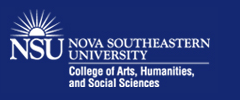Abstract
The ongoing processes of peacebuilding involve dialogue (Lederach 1997) and co-discovery (Freire 1970), which can sometimes be facilitated through academy-initiated research. Qualitative research provides opportunities to move from a positivist approach to a more equal, participatory, interactive exploration that benefits all participants, including the researcher in a “co-production of knowledge” (Karnieli-Miller, Strier, and Pessach 2009 p. 279). Cross-cultural, cross-language research (where researchers and participants do not share the same language), with all its riches, brings particular challenges for all involved. Beyond the issues of power and perceived power in any kind of research (Sprague 2005), in cross-cultural and cross-language research, already complex interactions are both facilitated/navigated and multiplied with the addition of an interpreter (Wallin and Ahlstrom 2006) who becomes the conduit for all interactions. This article focuses on the experiences of a cross-language interpreter involved in a participatory action study in peacebuilding in her home country of Ukraine. Her insights on the role of the interpreter, and considerations for future studies are shared through a conversation with the primary/initial inquirer at the end of this qualitative mixed-method project.
Keywords
cross-cultural peacebuilding research, cross-language peacebuilding research, interpreters, personal narrative, research methodology, Ukrainian women
Publication Date
11-2012
DOI
10.46743/1082-7307/2012.1140
Recommended Citation
Flaherty, Maureen P. and Starkova, Sonya
(2012)
"Conversation with an Interpreter: Considerations for Cross-Language, Cross-Cultural Peacebuilding Research,"
Peace and Conflict Studies: Vol. 19:
No.
2, Article 4.
DOI: 10.46743/1082-7307/2012.1140
Available at:
https://nsuworks.nova.edu/pcs/vol19/iss2/4



